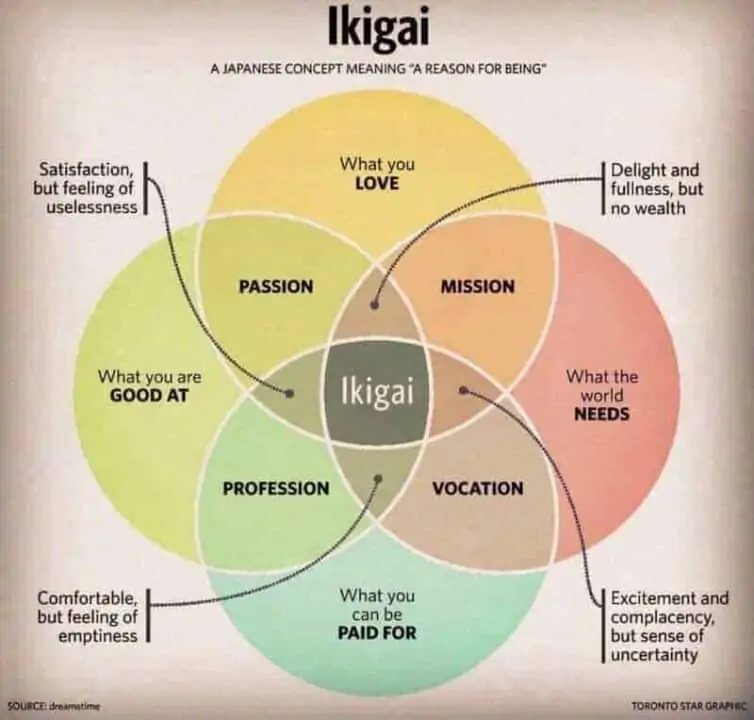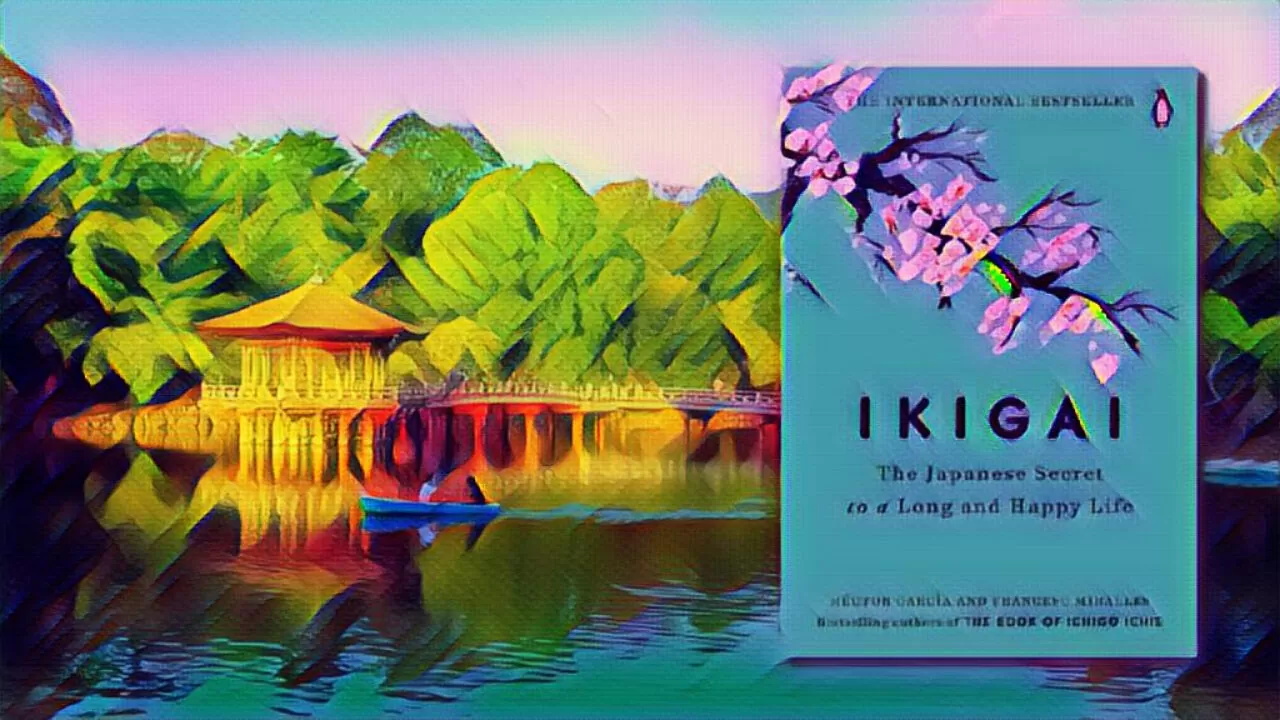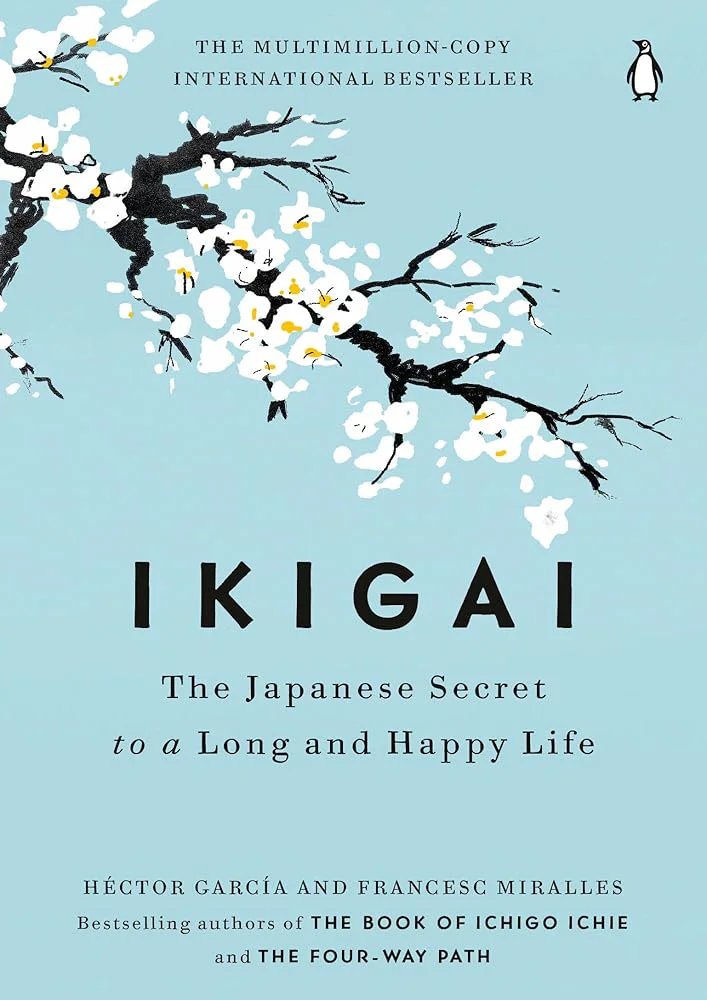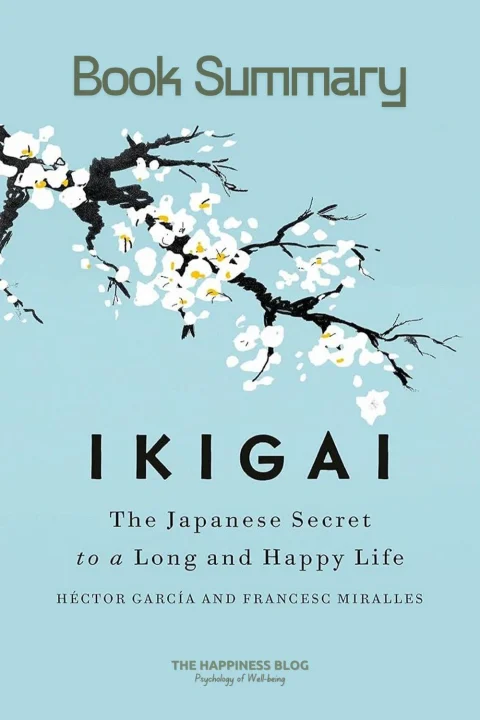Today's Sunday • 9 mins read
— Reviewed by Dr. Sandip Roy.
Let’s find out what secrets García and Miralles discovered in Japanese philosophy.
This quick summary of “Ikigai: The Japanese Secret To A Long And Happy Life” will help you find your life’s purpose, and live a happier and longer life.
The book Ikigai tells us about the Japanese islanders of Okinawa, a “blue zone,” or a place where people live for 100 or more years. On the island is Ogimi, more famously known as “The Village of Longevity.” People here have the highest life expectancy in the world.
How do they use the Ikigai principles to live such long and happy lives?
Summary of Ikigai: The Japanese Secret To A Long And Happy Life
Quick Summary: Ikigai is the Japanese philosophy of living a happy life, being involved in our passions, and working without burning out. Practicing our Ikigai helps us fulfill our life’s needs, have fun with our friends, and bring meaning to our lives. It shows us the principles of living long while working optimally.
Ikigai in Japanese means “a reason for being,” “the thing that makes life worth living,” or “a reason to jump out of bed in the morning.”
How To Find Your Ikigai
To find your own Ikigai, authors García and Miralles ask you to first identify these 4 elements in your life:
- Passion: What you love. Find what you love to do, that brings you joy and excitement.
- Mission: What you’re good at. Find what you are good at, and why it matters to you.
- Vocation: What the world needs. Find what the world needs to turn your passion into an occupation.
- Profession: What you can be paid for. Find out what you can be paid for, so you can earn money and achieve success in your career.
Ikigai is the central point where your passion, mission, vocation, and profession meet. It is something that you love to do and are good at doing; it’s also something the world needs and that you can be paid for.

Together, these four elements zoom into your Ikigai. They guide and inspire you to pursue your purpose in life, helping you find true happiness.
So, explore your interests, talents, and values. Find one passion that aligns with the needs of the world. And you would find your Ikigai.
Then, pursue your Ikigai-matched career path. It will make you get out of bed each morning with curiosity, passion, and pride for what you do.
Three messages here:
- Finding your Ikigai is a process of self-introspection and self-discovery.
- Keep an open mind and start with courage (to learn) as well as flexibility (to unlearn).
- Living with your Ikigai is a lifelong process — only when you dedicate your life to it that you can find a long, happy life.

7 Practical Steps of Ikigai: Wisdom To Live A Long, Happy Life
From the book, we learn that to get a sense of purpose, direction, and fulfillment in life, we should:
1. Slow down your living, live in the present moment, and savor life.
There’s no reason to rush through life, racing from one experience to another without stopping to smell the roses.
Instead of putting off your happiness until your dream comes true, enjoy the present moment and its joys.
2. Keep working on your passion project without retiring.
When you find something that you love doing every day, it is no longer work. Why stop doing it, even if you’re 65?
Your purposeful work could be something you’ve always done, something you’ve always wanted to do but couldn’t find time to do, or something you learned to do.
Staying active is one of the best keys to a long life. Studies show that retirement can lead to early death.
Remember, “Ikigai” is your “reason for existing” or “raison d’être.”
3. Don’t Overeat. Don’t Eat To Fill Your Stomach To The Fullest.
The Okinawans eat only until their stomachs are about 80% full, then stop. This is called “hara hachi bu.”
Science supports this custom as it helps to extend one’s life by improving digestion and sleep.
This eating pattern also prevents overeating, which is a major cause of obesity, heart disease, and diabetes.
4. Smile, laugh, and be happy as much as you can.
The Okinawan people recommend that we smile a lot and laugh our hearts out, as it relieves stress and makes us more cheerful and hopeful.
They encourage us to spend time with our friends doing things that make us happy.
5. Surround yourself with people who truly care about you.
Okinawans believe that they live longer because they surround themselves with good friends. Ikigai includes forming meaningful relationships and contributing to the community.
Science backs this up, and research shows that our friends are indeed the greatest source of our happiness.
They give us a non-judgmental, safe space to share our ideas and fears, encourage our attempts, and celebrate our successes.
Friends also reduce feelings of overthinking and loneliness, both known risk factors for depression and physical illnesses.
The Ogimi people place a high value on spending time with friends and family, as well as living a life as stress free as possible.
6. Do some exercise (and dance) every day.
The Ikigai philosophy tells us that we have to keep fit if we want to live a long and fulfilling life.
Okinawans walk a lot and often gather in the evening to practice the traditional Okinawan dance.
They think that we cannot follow our ikigai properly unless we have a healthy body.
Science supports this, and research has proven that exercise can not only boost our mood but also keep away depression.
7. Feel grateful for the good things in your life.
Ikigai cannot occur in the absence of mindfulness and gratitude.
When you’re living in alignment with your Ikigai, you’re able to devote your time and energy to things that truly matter to you. You feel a sense of meaning and purpose in everything you do, which can lead to greater happiness and a more fulfilling life overall.
When we are mindful, we do not waste time worrying about the future or overthinking the past.
And when we are grateful, we find happiness in what we have rather than being upset about what we don’t.
Main Theme of The Book Ikigai
The main theme of the book is discovering our Ikigai. Perhaps the more crucial idea is that all of us, wherever we live or come from, can find our own Ikigai.
Practicing our Ikigai can help us live longer, happier, and more meaningful lives, build relationships that fill us with pride and joy, and know what is the bigger purpose of our existence.
Authors Héctor García and Francesc Miralles wrote “Ikigai: The Japanese Secret to a Long and Happy Life” based on their experiences and research. The book became an international bestseller.
History of Ikigai
Ikigai is a combination of two Japanese words, “Iki”, meaning “life,” and “gai”, meaning “worth.” Together, they refer to one’s life’s worth, meaning, or purpose.
The Japanese see Ikigai as a part of their identity, closely tied to their career or calling.
It has long shaped their social and cultural norms. They truly believe that their Ikigai is the reason they exist, and it surrounds their lives and work.
Researched Benefits of Ikigai
- Ikigai practice can increase self-awareness, improve mental health, well-being, and relationships, and let us feel we are doing meaningful work. It also helps us live a happier and more satisfying life.
- Authors García and Miralles found evidence that people with a strong sense of Ikigai live longer and healthier. They had low rates of stress and depression, better social connections, and high creativity.
- Research shows that having an ikigai is associated with better physical health (Murata, 2006), lower mortality (Tanno, 2009), and reduced functional disability (Mori, 2017).
- A study published in the International Journal of Mental Health and Addiction suggests that ikigai positively predicted well-being and negatively predicted depression (Wilkes & Garip, 2022).

Ikigai In The Modern World
It is hard to focus on our “Ikigai” today. We are under social pressure to match peer expectations and cultural norms, often prioritizing money and success over happiness.
But Garcia and Miralles say we can easily identify our unique Ikigai in the modern world to create balance, fulfillment, and happiness in our lives.
Read this insight from the book:
Kyotango, a small town in Kyoto, has three times more 100-year-old residents compared to Japan’s average. Takeshi Kitano, a Japanese movie director, followed some of these people to find out what were their secrets.
Kitano realized that they all had something in common: a hobby that they practiced every single day.
For a few hours each day, they did that one thing that kept them focused and interested. Like, one of the men painted, while one of the women carved traditional Japanese masks.
Kitano felt that this one daily activity creates a sense of meaningful purpose in their lives. And this leads them toward a happier and longer life.
Hector Garcia wrote in a post in The Guardian:
“The lesson we can draw from the people of Japan – and specifically the residents of Okinawa – is that we should do less when we are feeling overwhelmed, but keep busy when we feel like doing nothing. Don’t overwork, but don’t fritter those hours away either. The answer to longevity may well rely on a balance between the two.”
Final Words
Finally, finding our “Ikigai” is not an impossible or complicated task. But once you find it, do not neglect it.
You have to consciously nurture it once you find it. It is a process that requires time and love, much like we need to water our plants regularly.
√ Also Read: The Science of Ikigai: How It Makes Us Happier Humans
√ Please spread the word if you found this helpful.
• • •
» You deserve happiness! Choosing therapy could be your best decision.
...
• Disclosure: Buying via our links earns us a small commission.

